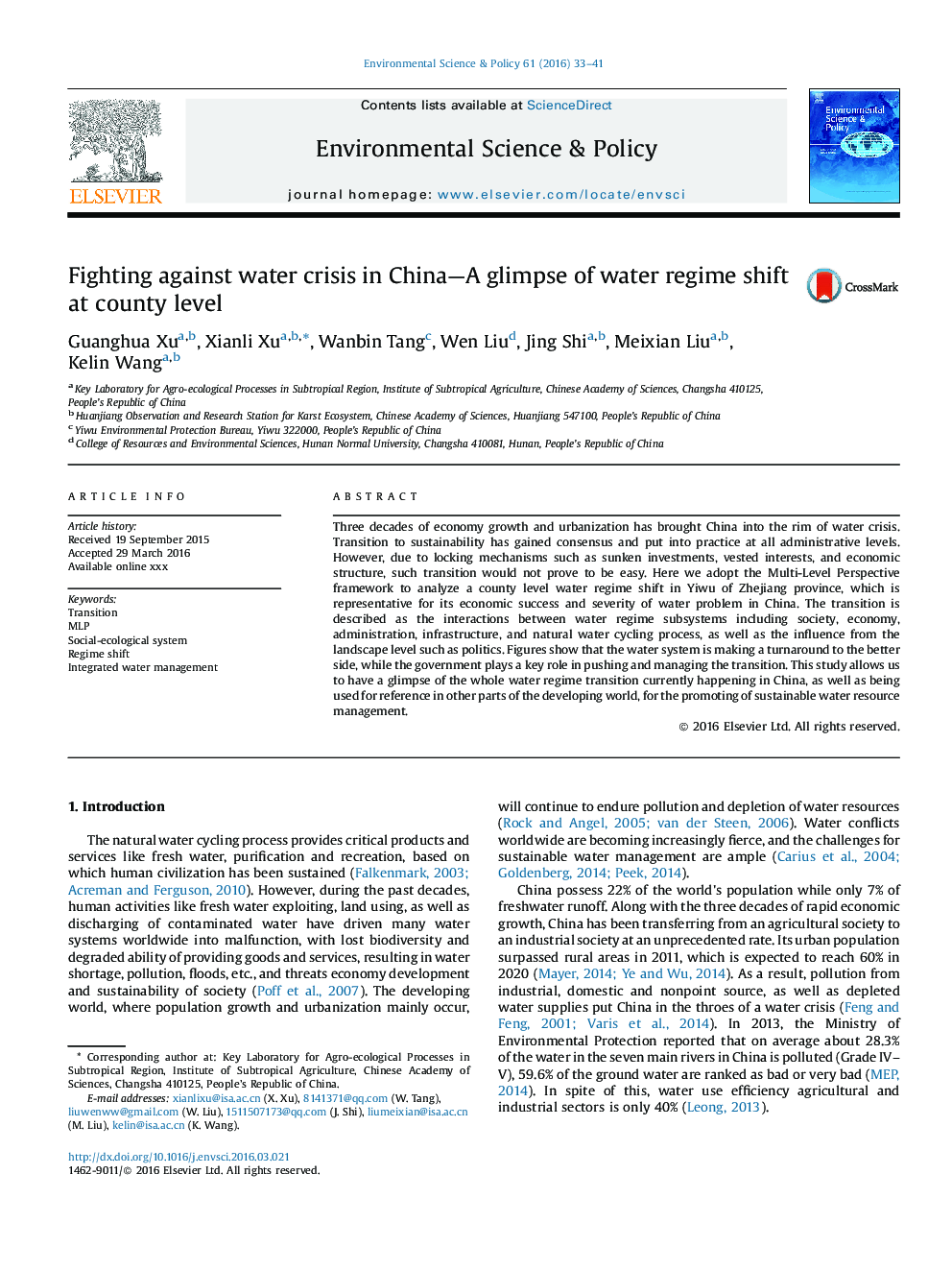| Article ID | Journal | Published Year | Pages | File Type |
|---|---|---|---|---|
| 7466802 | Environmental Science & Policy | 2016 | 9 Pages |
Abstract
Three decades of economy growth and urbanization has brought China into the rim of water crisis. Transition to sustainability has gained consensus and put into practice at all administrative levels. However, due to locking mechanisms such as sunken investments, vested interests, and economic structure, such transition would not prove to be easy. Here we adopt the Multi-Level Perspective framework to analyze a county level water regime shift in Yiwu of Zhejiang province, which is representative for its economic success and severity of water problem in China. The transition is described as the interactions between water regime subsystems including society, economy, administration, infrastructure, and natural water cycling process, as well as the influence from the landscape level such as politics. Figures show that the water system is making a turnaround to the better side, while the government plays a key role in pushing and managing the transition. This study allows us to have a glimpse of the whole water regime transition currently happening in China, as well as being used for reference in other parts of the developing world, for the promoting of sustainable water resource management.
Related Topics
Physical Sciences and Engineering
Energy
Renewable Energy, Sustainability and the Environment
Authors
Guanghua Xu, Xianli Xu, Wanbin Tang, Wen Liu, Jing Shi, Meixian Liu, Kelin Wang,
